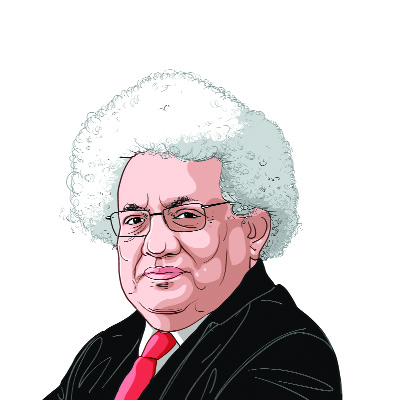Opinion Its Kashmir again
IT has been only a month and a week since the all-party parliamentary delegation went to Kashmir.
IT has been only a month and a week since the all-party parliamentary delegation went to Kashmir and we seem to be back to square one. The three interlocutors have a difficult job to do,but at least they have no official status nor any party loyalties.
This will allow them to take a much broad ranging and flexible
approach to a problem which has remained unsolved for sixty-three years.
Of course,if you are a party politician in mainland India,then your mind is made up. Kashmir belongs to India and is an integral part of India. End of debate. If you disagree,you are a traitor or a Pakistani agent. There may be a bit of room between the Congress and the BJP,but not much. Both parties have had Prime Ministers who thought they could break the logjam and sign a fundamental treaty with Pakistan. But Atal Bihari Vajpayee did not quite get there before the NDA lost and Manmohan Singh has been frustrated in his search for a solution.
History matters,but,of course,there is no agreement on the details of that history. It is hard to throw ourselves back to 1947 when the native states were being integrated into the Indian Union. Junagadh,Hyderabad and Jammu/Kashmir were the three recalcitrant kingdoms when it came to joining the Union. While in theory,any princely state could have joined either of the two states,contiguity had its compulsions. The nawab of Junagadh tried to align with Pakistan but did not succeed. His people had made up their mind that Junagadh belonged to India. It came close to war and only the failure of Pakistan to back up the Junagadh Diwan,Shah Nawaz Bhuttos request for troops stopped bloodshed.
Peoples wishes were the paramount consideration in Hyderabad as well. The Nizam had great ambitions to be an independent state with his own navy if only he could get access to the sea. His adviser Walter Monckton tried to restrain him but there was no holding the Nizam back. So finally,it was police action which settled the issue.
This is where Jammu and Kashmir was different from the other two states. The Maharaja was Hindu and the majority population Muslim,unlike in Junagadh and Hyderabad where the reverse was true. J&K was also on the boundary of both new nations and geographical contiguity did not yield a clear answer. The incursion of tribal groups from Pakistan into Kashmir was sudden and intended to force the merger. It was stopped in the nick of time by the Maharaja signing the Instrument of Accession with India. The Indian Army then secured the capital and drove back the intruders (now augmented by the Pakistan Army) up to the LoC. The UN was called in and the result was deadlock.
It was the policy of the Congress that peoples wishes would be consulted before full integration. In Junagadh and Hyderabad,there was no doubt. In J&K the plebiscite was going to be held as soon as normalcy returned. Kashmir acceded to the Union. But it was agreed by all that the full integration would require a plebiscite. This is why the Article 370 is part of the Transitory Provisions Chapter in the Constitution. In 1953,Sheikh Abdullah asked Nehru to talk with Pakistan and hold the plebiscite in both parts to finally cement Kashmirs integration into the Indian Union.
This was when Sheikh Abdullah was put under house arrest. Kashmirs integration was declared by the J&K Assembly while he was under arrest. The history of the dispute froze at that instant and has not been unfrozen since. Many,if not most,people in India will dispute my account,but it is a factual one. Many people in Kashmir remember this sequence of events. They remember that Sheikh Abdullah was held under arrest without trial and released and rearrested without trial and then released again. It was a travesty of justice. He was punished for stating a fact. This is more or less what Omar Abdullah asserted the other day. He was right. It may not help him after all though I do hope he does not end up under house arrest like his grandfather. Nor,I hope,do the interlocutors.


